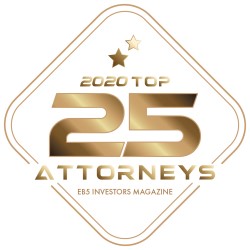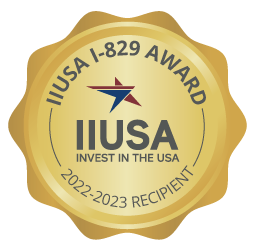Once an applicant has all the necessary documentation required for the EB1A visa application and their visa is approved, they can receive permanent residency status in the United States. The EB1A visa does not require the applicant to have a job pre-arranged. Therefore, the applicant can work for themselves as self-employed or find a job in any field in which they have expertise.
The EB1A visa is a valuable option for highly-skilled individuals seeking USA lawful permanent residence. While eligibility requirements are strict, it is possible for individuals who can demonstrate extraordinary ability in their field to obtain residency through an EB1A visa. If you believe that you qualify for this visa type, seek the services of an experienced immigration attorney to guide you through the application process. Good luck on your journey to obtain the EB1A visa!
EB1A Extraordinary Ability Visa FAQ
Q1: What is an EB1A Extraordinary Ability Visa?
A1: The EB1A is a preference category for United States employment-based permanent residency. It is intended for “aliens of extraordinary ability” – people who stand at the top of their profession or field of expertise.
Q2: Who qualifies for the EB1A Visa?
A2: The EB1A is intended for individuals who have reached the top in their field, meaning they have achieved a level of expertise indicating that they are one of a small percentage who has risen to the very top of their field of endeavor. This could be in the sciences, arts, education, business, or athletics.
Q3: What evidence do I need to provide to prove my “extraordinary ability”?
A3: The USCIS has provided a list of 10 types of evidence. You must meet at least 3 of these criteria, or provide evidence of a one-time achievement (such as a Pulitzer, Oscar, Olympic Medal):
1. Evidence of receipt of lesser nationally or internationally recognized prizes or awards for excellence.
2. Evidence of membership in associations in the field which demand outstanding achievement of their members.
3. Evidence of published material about you in professional or major trade publications or other major media.
4. Evidence that you have been asked to judge the work of others, either individually or on a panel.
5. Evidence of your original scientific, scholarly, artistic, athletic, or business-related contributions of major significance to the field.
6. Evidence of your authorship of scholarly articles in professional or major trade publications or other major media.
7. Evidence that your work has been displayed at artistic exhibitions or showcases.
8. Evidence of your performance of a leading or critical role in distinguished organizations.
9. Evidence that you command a high salary or other significantly high remuneration in relation to others in the field.
10. Evidence of your commercial successes in the performing arts.
Q4: Do I need a job offer to apply for an EB1A Visa?
A4: No, one of the key advantages of the EB1A visa over other types is that you do not need a job offer from a U.S. employer to apply.
Q5: How long does the EB1A application process take?
A5: Processing times can vary greatly depending on the specifics of your case and the current workload of the USCIS. Generally, it may take anywhere from several months to a year or more.
Q6: Do I need an attorney to apply for an EB1A Visa?
A6: While it’s not required to have an attorney, it is highly recommended due to the complexity of immigration law and the high standards for the EB1A visa. An experienced immigration attorney can help present your case in the best possible way.
Q7: Can my family join me in the U.S. on an EB1A Visa?
A7: Yes, your spouse and unmarried children under the age of 21 can join you in the U.S. under E21 and E22 immigrant status respectively.
Q8: Can I work while my EB1A application is being processed?
A8: If you’re already in the U.S. on a nonimmigrant visa that allows work, you can continue to do so. However, if you’re applying from outside the U.S. or on a visa that does not allow work, you cannot start working until your EB1A application is approved and you’ve received your green card.
Remember: Immigration laws can be complex and are subject to change. Always consult with a qualified immigration attorney or expert for personalized advic








